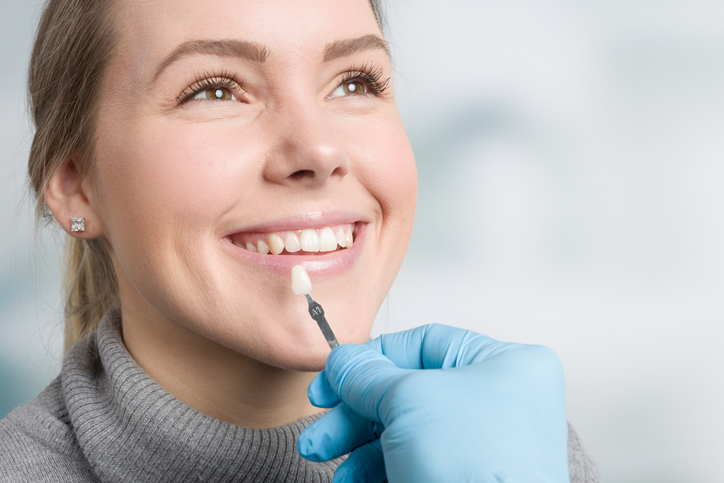
Veneers are a common solution to minor dental problems and imperfections, but there’s a common misconception that veneers are unsafe for your teeth.
Even though veneers are a popular treatment for minor dental issues, people naturally have some concerns before wanting to commit. At Espire, one of the most common questions we get is: are veneers bad for my teeth?
It’s true that veneers are an irreversible process, meaning they require your dentist to remove a thin layer of enamel from your teeth to set the veneer. But the risks to your teeth aren’t as serious as they might seem. Once you get veneers, all you need to maintain healthy teeth is a good dental care routine.
The Benefits of Veneers For Your Smile
Veneers are a thin layer of hard, faux enamel that look just like natural teeth. The objective is to conceal any minor imperfections with your teeth — whether your teeth are too small, unevenly spaced, chipped, or crooked. A major part of the appeal of veneers is their realistic appearance, which helps to give you straight, perfect teeth.
Veneers are a fast and effective way to repair any imperfections in your smile, without the drawn-out procedures of traditional orthodontics. With no higher chance of gum disease or dental decay than natural teeth, you can rest assured that your veneers will be just as easy to take care of as your teeth were before.
Now for the basics. There are two types of veneers: porcelain and composite. Each type has its own pros and cons, and they are both popular options for corrective dental care. Porcelain veneers are more expensive, but they tend to last longer (10-15 years, compared to 5-8 years for composite). Porcelain veneers are more lifelike and less easy to stain. On the downside, porcelain veneers take up to three separate visits to install.
Are Veneers Unsafe?
So, are veneers bad for your teeth? The answer is: not if you take care of your teeth! Among people who are considering getting veneers, the most common concerns are about the permanence of the procedure and the susceptibility of decay and infection.
Fortunately for your teeth, veneers do not carry a higher risk of tooth decay or infection than your natural teeth. Parts of your natural teeth are still exposed to the food you eat, and your gums are still in need of flossing. Once you get your veneers, all you need to do to prevent tooth decay is brush twice a day, floss once a day, and limit your intake of sugary and acidic foods. Veneers are very hard and durable, but you should avoid eating very sticky or chewy foods to protect your veneers.
The other common concern people have with veneers is their effect on natural teeth. When you get veneers, your dentist will usually remove a thin layer of enamel from your natural teeth underneath. This procedure does not increase the risk of tooth decay, but it does make veneers an irreversible procedure. So, when your veneers begin to age out after ten to fifteen years, you will need to get them replaced with new ones.
Getting Veneers with Espire
Schedule an appointment at Espire’s Colorado Springs location today! Our highly trained dentists can install high-quality veneers, or simply check your teeth and repair damage. Don’t live near our Colorado Springs office? Find one of our other locations near you.
Colorado Springs
8610 Explorer Dr #315
Colorado Springs, CO 80920


